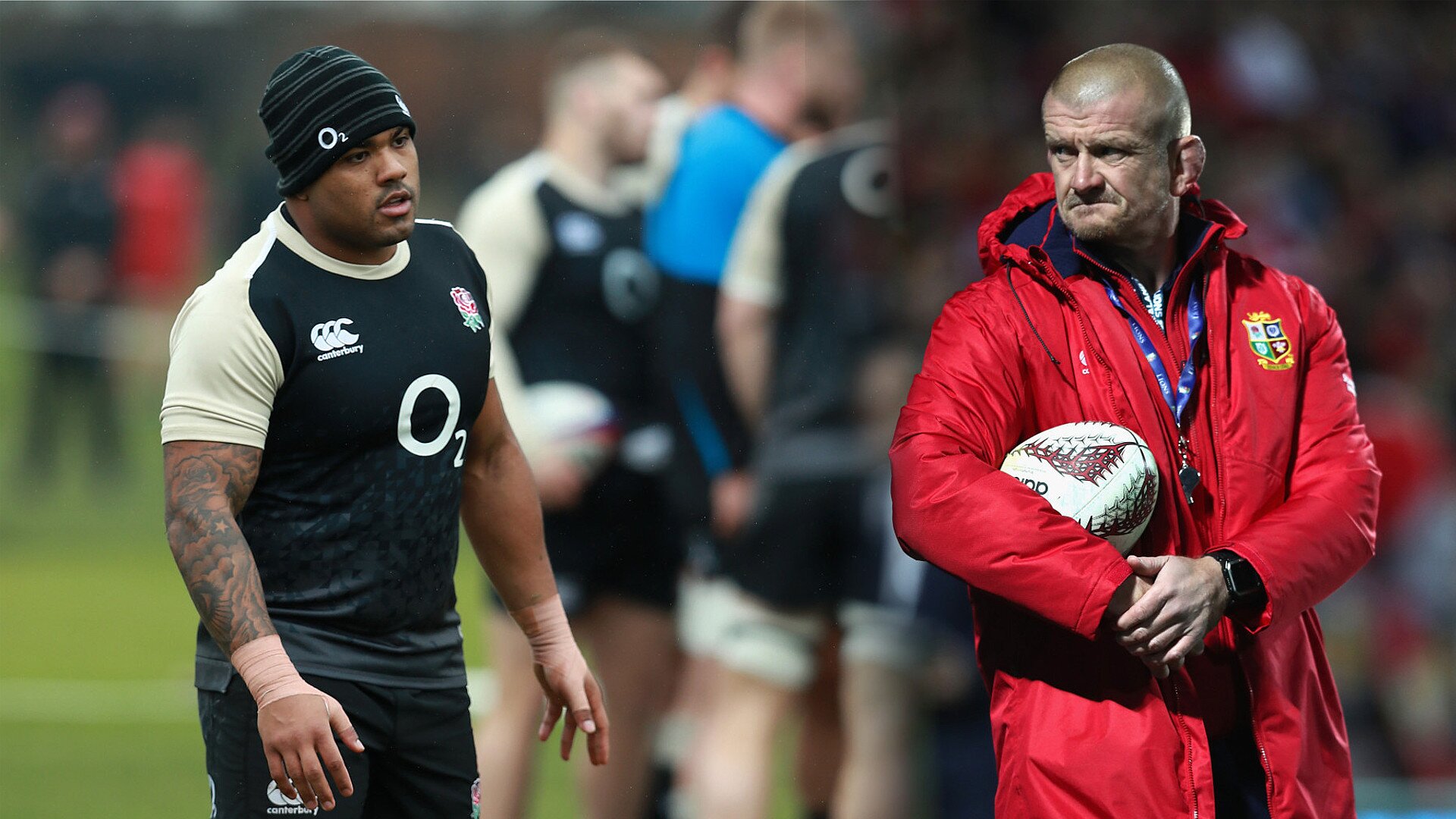'I backed Sinckler for the Lions because he plays on the edge' - Big Jim's Big Interview: Rowntree

In our latest edition of Big Jim’s Big Interview, Jim sits down with his former Leicester Tigers teammate Graham Rowntree, the 54-times capped England prop who is currently the scrum coach for Georgia.
The former member of the ABC club talks about the Georgians, the British and Irish Lions, the Kyle Sinckler furore and much more below.
Graham Rowntree: James.
Jim Hamilton: Graham.
GR: You don’t like being called James, do you?
JH: Mate, I don’t mind James, it’s my… how would you say, official name? My posh and respectable name.
GR: What’s your stage name, then?
Continue reading below…
JH: [laughter] Are you back in Georgia?
GR: Yes, just back in Georgia. We played in Belgium on Saturday night and we were in England all last week, Jim.
JH: I saw that, Wig. So, let’s ask the question that everyone’s asking. Who won the fight?
GR: [laughter] What fight?! Tempers got frayed, mate, but there was nothing in it. It was all part of an intense session and the lads all shook hands afterwards and we had a great couple of days training with them. A great couple of days.
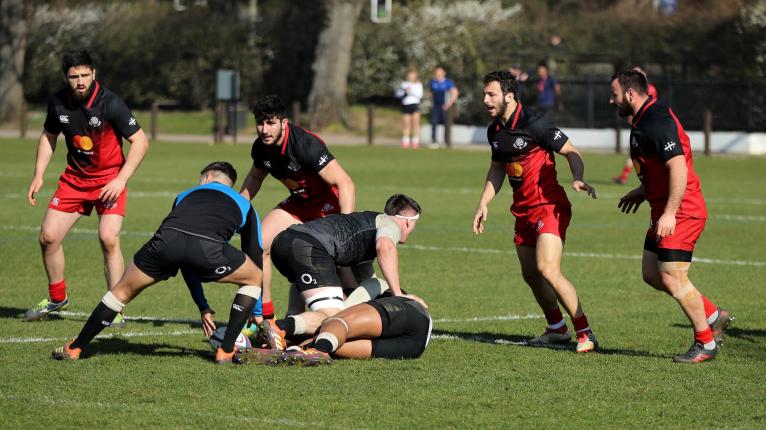
JH: Was that weird for you? We’re interviewing now by the way, mate. I thought we’d go straight in as I know you’re a busy man.
GR: Are you taping this?
JH: Yeah, whatever you say can and will be used against you in a court of law. Was it weird for you training against the England guys or not? I know you worked with some of them at Quins, but in terms of going back into that environment.
GR: No, not at all. I got asked that a lot last week. I hadn’t seen a lot of them in 12 or 18 months, since the Lions or Quins. I still know some of the backroom staff there and I really enjoyed it. I was really impressed with how they do things.
JH: As in the England boys? The way that they train? What bits specifically?
GR: Yeah, how they train. The speed and the intensity with which they were training. So, one game we did light units against one another. Backs were at one end of the field doing their stuff and then the scrum at the other. Then on the Thursday we did 15 vs 15 live, well, it wasn’t all live, but it was an intense, quick session against them. It was brilliant for our lads. The speed of the defence was really impressive and it was great for us to train against. We did alright, as well.
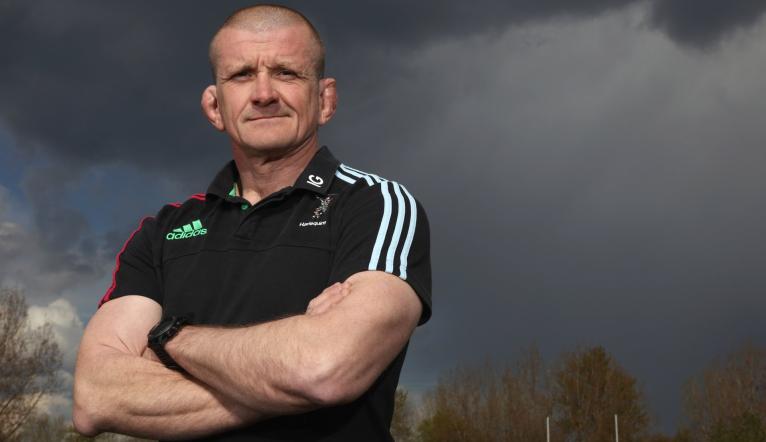
JH: I know me and Goodey [Andy Goode] were joking about it on the podcast and the stuff, but to play a game against Wales – and I know you boys had a big couple of weeks and we’ll get on to that – and for them to still be so up for it, were you surprised by that? Or was it a case of them having to because you boys were firing into them?
GR: I think they train like that, anyway. I think they would have trained that way against any team regardless of the Welsh defeat or not, that’s just how they train. I think emotionally Cardiff was difficult for them, but they’ll get over that, that defeat won’t harm them in the long run. They’ll have learned from pressures and things like that.
So, we turn up and it’s a big moment for some of the Georgia boys and they get starstruck, for want of a better word, playing against guys they only usually see on TV. It didn’t faze us, though. We did really well and both teams got a lot out of it. It got a bit physical on the Wednesday, in the scrum session, but it was good for them. After the lows of Cardiff, I think for England to have a hit out like that was good for them.
JH: I know I asked you if it was weird for you going back, but let’s go back a few years, Wig. How have these last few years been for you? Obviously the British and Irish Lions tour was a highlight, but give me a brief assessment of how you’ve seen the past few years as a coach? I should go on record saying as well that you’re one of the best coaches I’ve worked with.
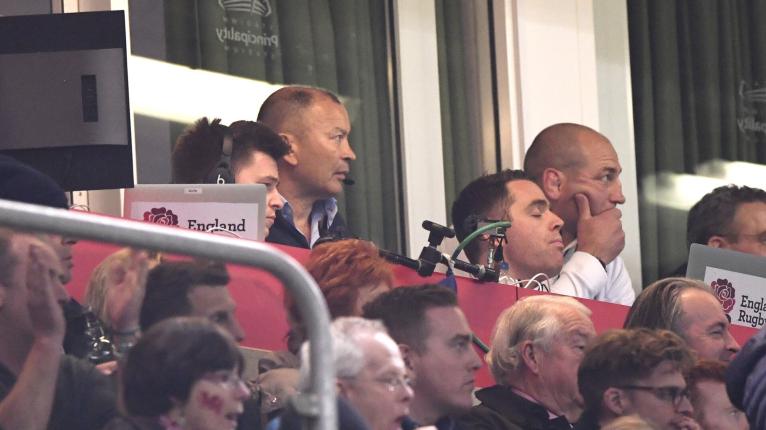
GR: That’s very nice of you to say that. A home Rugby World Cup and we don’t get out of the group. We were under incredible pressure in that World Cup. Then Eddie [Jones] came in and brought in his own crew. Fair enough. It wasn’t the best time of my life, but you’ve got to learn from things and move on.
JH: So, Wig, when you’re in that situation and we all saw what happened with [Stuart] Lancaster, and there’s obviously a lot of talk about players being down, but do the coaches feel it massively as well? How did you take that, being the born-winner that you are, and obviously the World Cup being on home soil?
GR: It wasn’t great, Jim [laughter]. I’m not going to lie, it wasn’t the highlight of my career.
JH: The toughest [moment]?
GR: Yeah, it probably was the lowest point. The whole nation was expecting and we didn’t deliver. I’ll tell you what was pleasing afterwards, though, and that was seeing that group of lads go on and win a Grand Slam within a few months. They’ve gone on to do great things. Championships, Grand Slam, British Lions. That group have learnt from that experience and that has made me proud.
JH: Let’s talk a bit about the British and Irish Lions tour. You only made one major mistake in 2013 by not taking me…
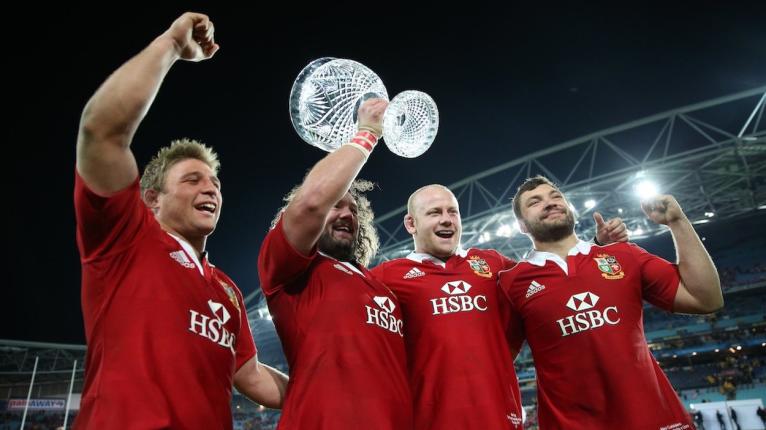
GR: Not again. Not this again, Jim. We’ll take that chat offline! Yeah, it was an honour to be a part of that. My third tour with Gats [Warren Gatland], second with the likes of Faz [Andy Farrell] and Neil Jenkins. It was an honour to be a part of that, work with the greatest players and go to the toughest place in New Zealand. We did alright, you know. Got to that last game and we could have won it. Most teams go down there and get smashed. To get a draw out of the series was a very proud moment. That was one of my highlights.
JH: Just give me a little bit of insight into what it’s like to work with Gatland. I’ve never worked with the guy but everything I see just seems positive. Is he as good as it seems from the outside?
GR: He’s good at managing people, Jim. He’s good at taking pressure off of people and absorbing that pressure, which we had a lot of on that Lions tour. He trusts his coaches and they deliver his message. He’s a big believer in less is more in terms of training volume. He rewards guys with the quality of their training and he’s good to be around. He likes his wine, especially, and he’s quite a relaxed bloke. He’s just good at getting the best out of people and managing them. You want to work for him.
JH: How was that pressure for him in New Zealand? It must have been brutal? I was in New Zealand and reading some of the papers and that media circus that went on, but did you notice that there was an added pressure on him compared to other tours?
GR: Yeah, there was more, obviously, with him going back to his home country. They were after him quite a bit and it got to his family, so he got quite upset. Not that you would have noticed outwardly, but if you were close to him, you could tell it upset him. But he just cracked on and did his job.
JH: Let’s talk a bit about Quins, then. How did that differ from the international job and the British and Irish Lions?
GR: I loved it. There were some good lads there and I’d worked with a lot of the guys before with England. I commuted for two years because I couldn’t really move my kids down there as they were in delicate school years. I enjoyed it and I had another year to go on my contract. We had a disappointing end to the season last year to say the least and John [Kingston] went, and then Gussy [Paul Gustard] came in.
I think Gussy is a fantastic coach and a great lad. Just look at how Quins are doing at the moment, but it just got to the point where I looked at what I was doing and what I wanted to be doing and I decided it wasn’t for me. They didn’t want me to go and I had a year to go on my contract, as I said, but I decided it was time to leave. I just want to stress, though, that it was nothing to do with Gussy coming in, I think he’s a great signing for the club and he’s doing fantastic things for them, but it just made me think about my family, the commute, the travel and I decided to walk away. Luckily, Georgia rang me up shortly afterwards.
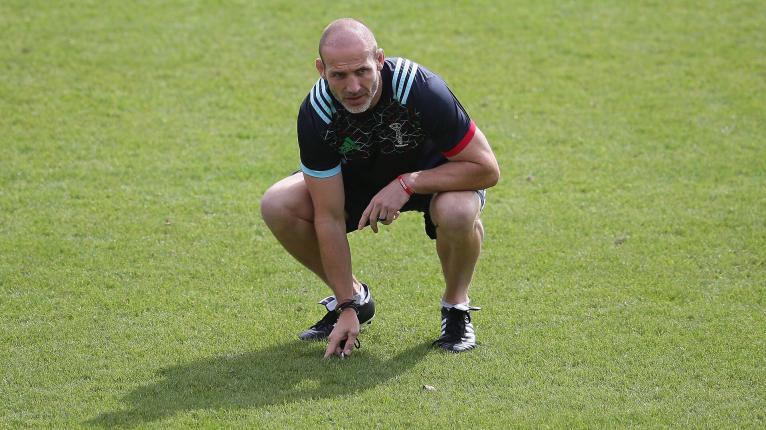
JH: And there’s no better fit, Wig.
GR: I look the part, don’t I? I had a load of mates texting me after saying, “I didn’t realise how Georgian you look!”
JH: Exactly. So, how has that been? I’ve always been a fan of the Georgians. They’re hard-working, humble. Just give us a bit of insight into what they’re like as blokes and how strong and physical they are on the pitch.
GR: Great. They’re everything you’ve just described. Hard-working and humble. There’s no sense of entitlement and they love training. You want to see the amount of weight they can chuck around in the gym. I’ve never seen anything like it. They don’t regularly show emotion, but when they go, they really go. I’m quite fortunate that most of them speak good English. Most of the forwards play in France, so they’re speaking English as well as French, but I’ve got some great people around me and a great coaching staff. I’ve got a great S&C coach, who speaks fluent English and Georgian and translates a lot for me. They love their swear words, Jim, which can be understood in any language with the right tone! But I love it, mate. I love working with them and I’m here until the end of the World Cup and then we’ll see what comes.
JH: In terms of Georgia, you’re in amongst it with the guys. Having coached for many years in the Six Nations and now you’re in Georgia and the Rugby Europe Championship. You’ve got Spain, Belgium, Romania and Russia – that’s the big one…
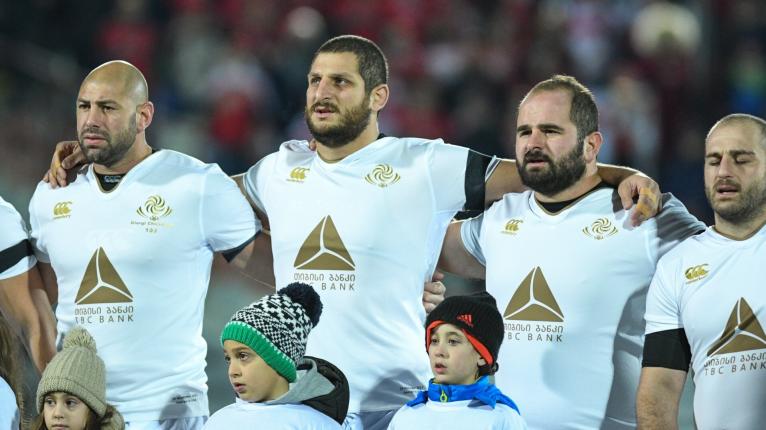
GR: Yeah, Russia is a local derby for us. A lot of passion in that game.
JH: There’s a lot of talk about Six Nations relegation and promotion. Do you think that would benefit a team like Georgia now that you’re working in this championship?
GR: I get asked this a lot, too, about whether or not we should be in the Six Nations. The fact is we’re not at the moment. Unless we’re knocking over tier one nations regularly and our performances are up there, there’s no point speculating in my mind. We had a chance to beat Italy in the November campaign and we played well, but we lost 28-17. We have to perform better ourselves in those games if we’re going to give credibility to the idea we should be in the Six Nations instead of Italy. Until we are doing that regularly, it’s a scenario we don’t have any control over.
JH: Who is your biggest rival? You mention Russia being the local one, Romania a couple of years ago…
GR: Yeah, Romania are always tough, always big. A lot of these teams struggle with their players in the French leagues. They play Germany this week and will be missing a number of their guys because you just can’t get the players back. Traditionally, though, Russia are our big rivals. There’s a history between the two countries and geographically they’re closest. In my experience so far, that’s the big rivalry game.
JH: I’ve played over in Georgia with the Barbarians in Tbilisi and they’re rugby mad. What are some of the crowds like?
GR: We can sell out our main stadium, which is 70,000, but we don’t play there very often. We don’t do that every home game, but it is the major sport. Everyone knows their rugby here. They’ve all wrestled from an early age and they all love wrestling and rugby. I suppose the two go hand-in-hand, really. It’s a really passionate nation.
JH: Your son in the Leicester academy is a spitting image, mate. I saw him at the side of the pitch doing scrum technique. None of this extra speed or passing, just straight in one-on-one scrums.
GR: He does that at home with me! Batters me…
JH: He heard about scrummaging when he was in the womb, so it was always going to happen. So, how do you see this modern game? Are you pushing him into this professional game or are you a little bit wary with the way things are?
GR: Of course, I’m wary. He’s just got to keep his options open. Any young man in that age group has got to keep their options open. Luckily, he’s very academic, so that for me is the prime objective, do well at school and go to university. I’ve been very impressed with that Tigers academy, not just the coaching, but how they look after them off the field. He’s just got to have a balance to his life and if he doesn’t get taken on by Tigers in a year’s time, then we’ll find something else. As long as he does well in his studies and can go to university, someone will find him at some point. I’m trying to keep him open-minded and at this point he is.
JH: Lastly, I wanted to ask you about this [Kyle] Sinckler thing. I know you’ve worked with him. He is probably the typical modern-day prop in the way he plays, but what are your thoughts on the media storm that has surrounded him? What’s he like, first and foremost?
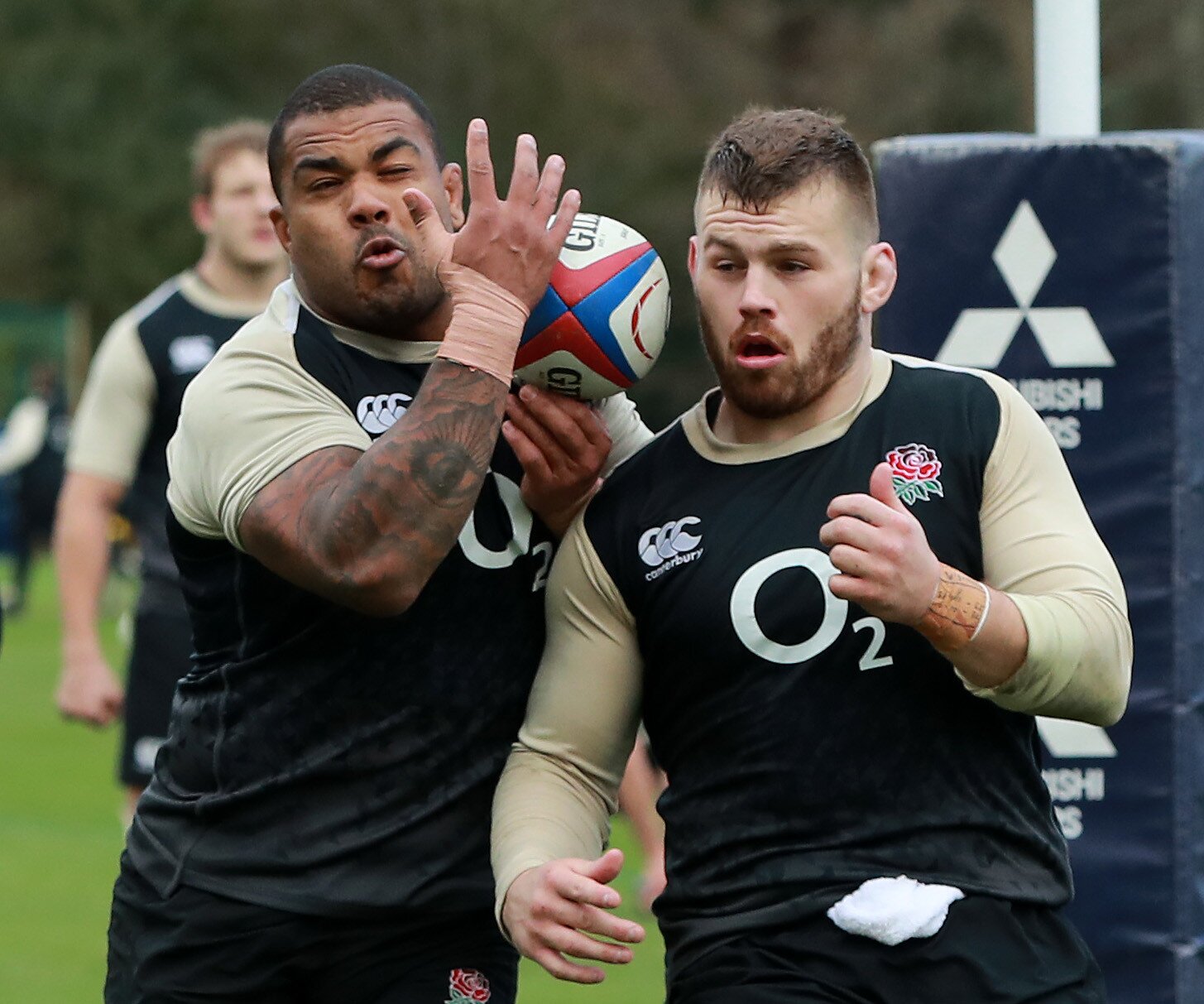
GR: He’s a great bloke. He’s good fun to be around and a real rugby buff. When I used to work with him, he’d say “tell me another Darren Garforth story”, “tell me another story about the ABC club”…
JH: That’s not rugby, Wigs… so what’s he like then? He’s taken a bit of stick in the media.
GR: As usual, these things get inflated. I love the way he plays the game. I really backed him to go on that Lions tour because he plays on the edge. He knows he has to manage his emotions, but you can’t take away how well he plays the game. People don’t talk about his scrummaging, but his scrummaging has come on immensely. His work rate, his aggression, his tackle count – I think he was up to 20 by half-time – and having worked with him, he’s so professional. If I were his coach now, I’d say I want him on that line but not crossing it. Just keep hold of your emotions, because I love the way he plays the game.
JH: He’s a cracking player. Last question then, Wigs. After the World Cup, what are you hoping for? What’s the dream or the ambition? Are you hoping to get back into the Premiership?
GR: We’ll see. I’m very open-minded and never say never to anything. There might be a couple of things I’m having a look at now back in the UK or I’ll just keep doing what I’m doing now, because I quite like the lifestyle. We’ll see. Never say never to anything.
JH: Thanks for chatting to me, Wig. Tell Mamuka Godzilla I was asking about him, he’s one of my best mates.
GR: [laughter] Will do. It’s been a pleasure.























































